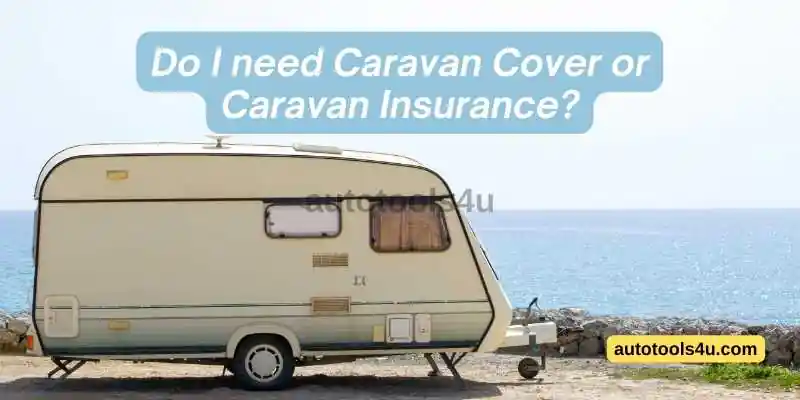Once purchased your new caravan, you must confirm that it is secure, government-approved, and road-legal. Compliance with applicable rules and regulations enforced by legislation is a crucial aspect of caravan ownership since there are precise criteria that must be met before you may possibly tow or even use a caravan for leisure purposes.
- it’s important to have the right insurance in place.
- The main and widest cover that you can have is the complete cover.
- It provides both third-party liability and full collision damage waiver (CDW) but does not include any personal belongings loss or damage.
- You will also probably want to consider breakdown cover for yourself and your family
- If your caravan isn’t insured then it may be worth considering whether you need something more robust like total loss cover which will provide an agreed sum of money if your vehicle is written off due to circumstances beyond its control such as being in an accident or damaged by storms etcetera
When your caravan is pulled on a public roadway, your vehicle insurance will normally give third-party liability cover; this covers you for assertions made against you because of other people, but it is uncertain to encompass any loss to your caravan or anything really inside it.
Caravan Insurance – Legal Requirement? 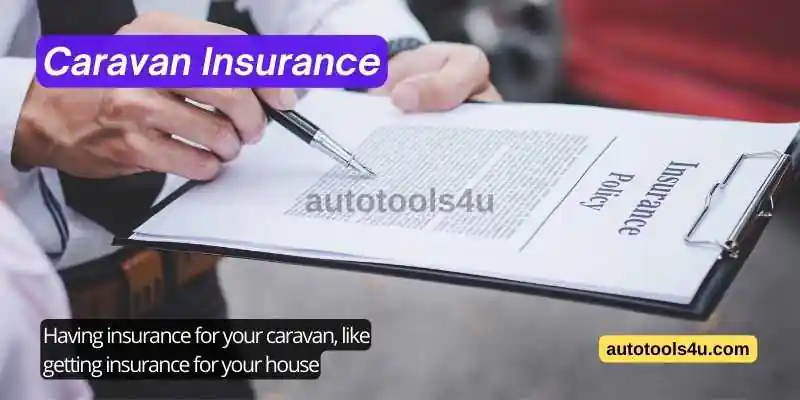
Having insurance for your caravan, like getting insurance for your house, is not a legal obligation. If you’re going on holiday and believe that traveling with such a caravan will be a fantastic way to tour the nation, they may have some legal problems. Aside from knowing about licensing and weight limits for your automobile and caravan combo, you’re simply thinking about what type of insurance coverage you’ll require.
The Main and Widest cover is the complete cover. 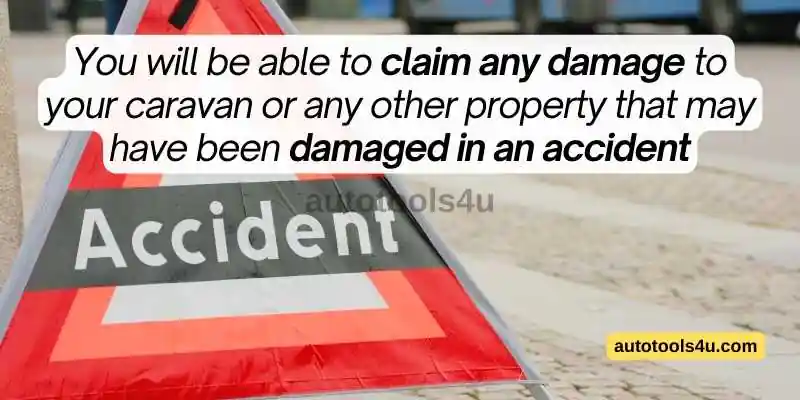
The main and widest cover that you can have is the complete cover. With this option, you will be able to claim any damage to your caravan or any other property that may have been damaged in an accident.
Is Insurance Required to Tow a Motorhome? 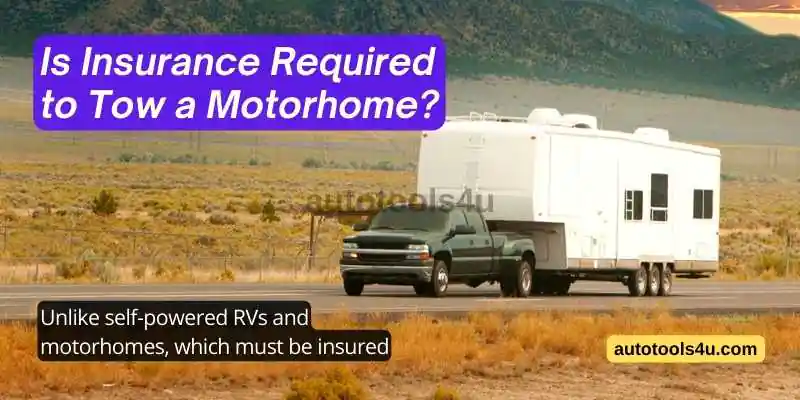
Unlike self-powered RVs and motorhomes, which must be insured, there really is no particular insurance necessary by legislation to pull a caravan, if you will be renting one for a vacation or purchasing one. Towing a caravan back to your vehicle does not always need the purchase of insurance. However, you may wish to get additional coverage. This is why.
Full insurance on the automobile you will be towing will usually contain an additional provision for transporting caravans or trailers, although this insurance coverage is limited.
Most automobile insurance coverage for caravans, for example, only extends to third-party assertions for damages to someone or their properties triggered by the caravan while it was being hauled away and won’t cover damages to your caravan.
That is, the bulk of firms will not insure your caravan in the event of an accident. If that’s not a problem for you, you are not required by law to acquire additional coverage to tow a caravan. Any additional coverage you choose to add is entirely optional—if users want to pay for the cost of repair service caused by an accident or fraud for your caravan, purchase special “caravan insurance,” which will cost primarily based on the value of your caravan.
MotorHome/RV Insurance Legal requirements in the UK 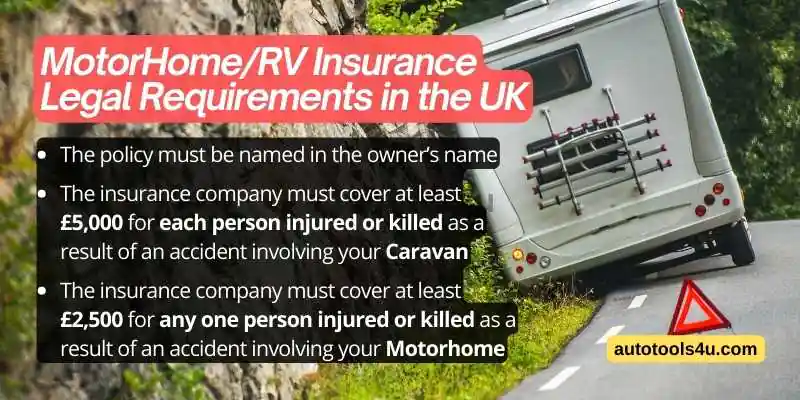
A Motorhome insurance policy is a legal requirement in the UK. When you buy a caravan, it must be insured at all times as if it was parked on your driveway at home. Not only will this protect you and your family from financial loss in case of an accident, but it will also safeguard other people and their property if they are involved in an accident with your caravan.
Below is our guide to the minimum requirements for Motorhome Insurance:
- The policy must be named in the owner’s name
- The insurance company must cover at least £5,000 for each person injured or killed as a result of an accident involving your caravan
- The insurance company must cover at least £2,500 for any one person injured or killed as a result of an accident involving your motorhome
The legal requirements for campervan insurance, and motorhome insurance, in the UK are largely similar, with some slight differences.
The laws on what you must have in place for each type of vehicle are:
- Campervan or Motorhome – Third Party Liability Insurance at least £2 million
Motorhomes/RV Insurance requirements in the US 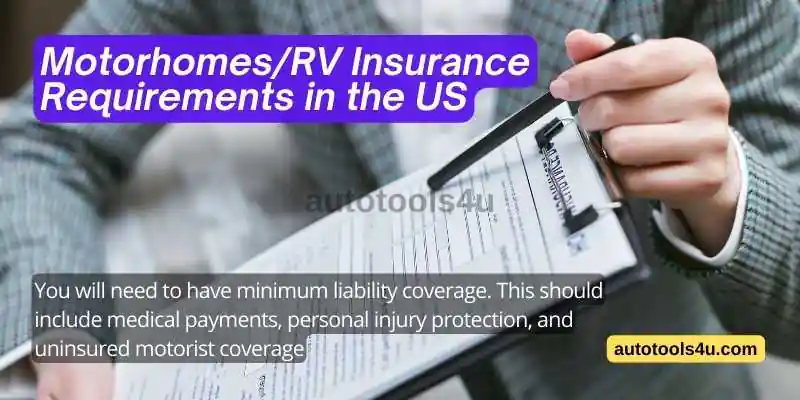
Motorhome insurance requirements in the US
- You will need to have minimum liability coverage. This should include medical payments, personal injury protection, and uninsured motorist coverage.
- You will also need to have a minimum of personal belongings covered. This is important because it will protect your valuables from damage or loss if they are stolen from your RV during transit or parked at an event venue for any reason.
- You should also get personal accident cover, as this covers hospitalization costs for injuries sustained while riding in your caravan or while working on it (if it’s not written into your car insurance policy).
These three kinds of car insurance policies can be purchased together under one provider or separately from different providers.
The minimum required coverage for a campervan or motorhome in the US is liability only. In the UK, third-party liability cover is compulsory for all vehicles. This means that if you were to cause an accident and injure another person, your insurer would pay up to £1 million towards their medical treatment costs as well as compensation for any loss of earnings from work they might lose as a result.
In Australia, third-party liability insurance is also required by law but with some differences: drivers must have at least $2 million in public liability coverage per incident and $200k/300k personal injury protection (PIP) cover per person injured in an accident (depending on whether or not you have comprehensive car insurance).
Types of Caravan and campervan insurance 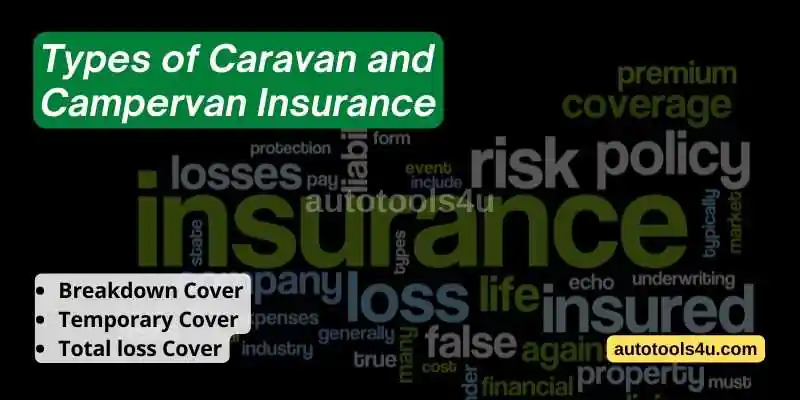
- Breakdown cover: If you’re driving during the day, your caravan is likely to be covered by breakdown cover. But if you’re on a long trip and breakdowns happen at night, then it might not be in place.
- Temporary cover: This covers you for short periods of time such as weekend breaks or holidays. It may only last from the moment that you leave home until the time that you return—or it could last up to 28 days, which means that if something goes wrong during your trip, there won’t be any problems getting back home again (if necessary).
- Total loss cover: If an accident happens while away from home and damages your caravan so much that it needs replacing then this type of policy will pay out enough money so that buying another one wouldn’t put too much strain on your finances.
Breakdown cover.
Breakdown cover is usually included in the cost of your caravan insurance, so you can expect to get it as part of your policy. It covers you in the event that your car breaks down when traveling or at home, or it’s stolen. This type of cover includes towing and recovery costs, plus repairs if needed – so make sure to take advantage of this if you want to avoid paying out more than necessary for any maintenance needs on your vehicle. Breakdown cover is available for both caravans and campervans (and even motorhomes), but also for all other types of vehicles too – so whatever kind of car you own, make sure that breakdown cover is included in your policy!
Temporary cover.
Temporary cover is a short-term policy, which can be for up to three years. It’s usually not a good idea to buy this type of policy if you are going to be away for more than a few months. If you have any doubts about the length of time you need cover, talk with your insurer before signing up.
Total loss cover.
If you have a total loss, it’s good to know that the insurance company will pay out the full value of your caravan. This includes any equipment and extras included in its purchase price. However, it does not include possessions or personal items inside the van. You’ll have to pay for those yourself if they’re stolen or damaged by fire or water damage, as opposed to external damage from an accident or theft.
Total loss cover is available from most providers at an additional cost above standard cover and can be worth paying for in cases where your caravan may be particularly valuable, such as if you own a vintage model that holds sentimental value for you.
What do I need to do?
Before you start looking for caravan insurance, it’s a good idea to have an idea of what kind of cover you need. A lot of us have car insurance and personal home contents insurance, but what happens if we add a camper trailer or motorhome? What are the risks involved with having an off-road vehicle that can be used further away from home than our cars?
Caravan Insurance Plans
There are three main types of caravan insurance: single trip (or short duration), annual and long term. Short-term plans tend to be cheaper because they cover one or two trips per year and only for certain dates – such as holidays or weekends away. Annual policies are less expensive than long-term ones but can only be used between specified dates throughout the year – typically March to October in the UK. Long-term policies provide cover outside this period too; however, they tend to be more expensive as they cover almost all your travels during those months when most people take their caravans out camping or touring around Britain and Europe
Is hauling a caravan going to affect the insurance?
Hauling a caravan should not affect your auto insurance, but it was always a good idea to double-check with your insurance company before hooking up.
However, as previously stated, comprehensive coverage for your automobile doesn’t really stretch to cover the damage to your trailer. In that instance, your comprehensive vehicle insurance will not cover damage or theft both to the car and the caravan, but solely the car—in most situations, the caravan only receives third-party coverage. So your vehicle insurance is “affected” in that sense (i.e., you don’t obtain comprehensive coverage for the entire car + caravan combo, simply the car).
Separately, if you own and decide to move a camper van, you may not only need one specialised moving company, but you need also to notify your caravan insurance provider, as you may be required to pay an additional premium to have it protected throughout the transfer.
What is the distinction between caravan insurance and caravan cover?
Caravan cover, for the most part, provides the very same security as caravan insurance; nevertheless, claims are managed on a conditional basis, which means that your claim is debated and evaluated on an individual basis, and pay-out or non-payment of the claim is not rigidly locked to the user agreement of the cover.
Caravan Cover, like Caravan Insurance, safeguards you from financial loss if your caravan and/or its possessions are lost, stolen, or destroyed.
The distinction between stationary caravans and travelling caravans is that travelling caravans may be transported to different locations, but static caravans – sometimes referred to as mobile homes – are semi-permanent buildings that remain in one location for many years.
As a result, when this comes to insurance, every kind of caravan has different needs. Touring caravan insurance is more equivalent to vehicle insurance, whilst static caravan insurance is more similar to house insurance coverage.
If you own a static caravan, it is strongly advised that you obtain insurance to protect yourself in the event of a disaster. This is especially crucial if you park it in a camping ground as static caravans in vacation camps are supposed to be vacation homes, not year-round residences. Leaving your caravan unattended for months on end increases the chance of break-ins or other unanticipated incidents, such as water destruction caused by a leakage that hasn’t been addressed immediately.
Static caravan insurance also protects you in a variety of different situations.
What is typically covered in static caravan insurance as standard?
Destruction of your static camper or the contents of your static van.
Your stationary caravan will likely be kept unoccupied for an extended period of time, making it more vulnerable to theft. That’s all the more reason to ensure that your stationary caravan insurance plan covers theft and suspected theft by violent or forced entry as standard.
Deterioration of your static caravan and its components
You must ensure that you are protected from damage to your static caravan plus your belongings within it. A variety of factors can cause damage, including:
Harsh weather – Because holiday parks are frequently located on the shore, they are particularly vulnerable to adverse weather conditions. Storms and floods may cause severe water damage, the pressure of ice on roofs can lead them to fall in, thunderstorms can smash windows, and ice can harm your boilers and plumbing. Other natural causes include, for example, the harm inflicted by a falling tree.
- Vandalism — Yet again, when you abandon your static caravan unsupervised, it is more vulnerable to vandalism.
- Accidents – Whether it’s a ball through the glass or damage to mains services, unintentional damage is a reality that may occur anywhere. Static caravans are typically composed of and include combustible materials, ranging from timber to upholstery. Structural flaws can be caused by anything from a leaky tap or commode to a light post or telephone pole tumbling over.
Additional covers
Rental insurance-
Protects you against the possibility of vacationers harming your caravans or their belongings, either unintentionally or on purpose. There’s also a danger you’ll be out of cash if your visitors don’t pay up what they owe. You will be covered if you rent a car.
Emergencies at homecare-
You may pay extra to take on home emergency protection, which provides immediate help for problems with your gas, electricity, or water supply.
The key cover-
If your key is lost, stolen, or broken, you’ll be covered, and in addition to replacing keys, locksmith expenses and the expense of replacement locks are generally covered as well.
Legal Safeguards-
Legal protection pays for legal bills if you are sued regarding your static caravan.
What isn’t covered by a stationary caravan insurance policy?
Wear and tear – Many insurance policies do not cover damage that happens naturally over time.
- Pest damage – Consider using insecticides to keep insects and rodents at bay. Damage or theft that does not appear to be the result of a forceful entrance.
- Flood damage — If a static caravan is stored in a flood-prone region. Valuable stuff — Items worth a considerable lots of money, such as gold and gadgets.
- Trading – If you utilize your static caravan for commercial or professional purposes.
As we saw, caravan cover or insurance policy is not a liable legal obligation but if you adhere to being on the safer side, it is recommended.
